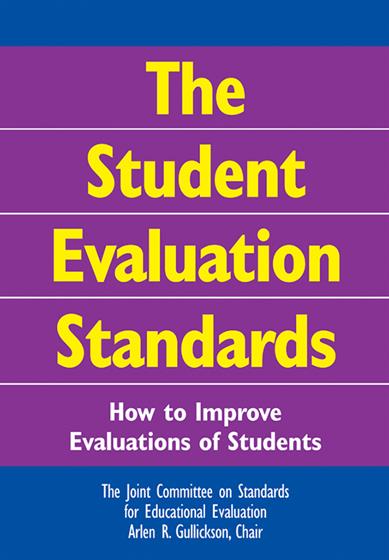
Hands-on, Practical Guidance for Educators
From math,
literacy, equity, multilingual learners, and SEL, to assessment, school counseling,
and education leadership, our books are research-based and authored by experts
on topics most relevant to what educators are facing today.
Bestseller!
The Student Evaluation Standards
How to Improve Evaluations of Students
The Student Evaluation Standards tackles the important questions and provides guidance to those in the educational community who plan or judge the evaluation process. The Joint Committee presents 28 certified standards for assessing evaluation practices in elementary and secondary classrooms. These standards are broken down into four essential attributes of sound evaluation:
- Propriety standards, which protect individual rights
- Utility standards, which ensure that evaluations are timely, informative, and influential
- Feasibility standards, which recognize "real-world" dynamics and environmental influences
- Accuracy standards, which determine whether an evaluation has produced sound information
Product Details
- Grade Level: PreK-12
- ISBN: 9780761946632
- Published By: Corwin
- Year: 2002
- Page Count: 264
- Publication date: January 01, 2011
Price: $43.95
For Instructors
When you select 'request review copy', you will be redirected to Sage Publishing (our parent site) to process your request.


